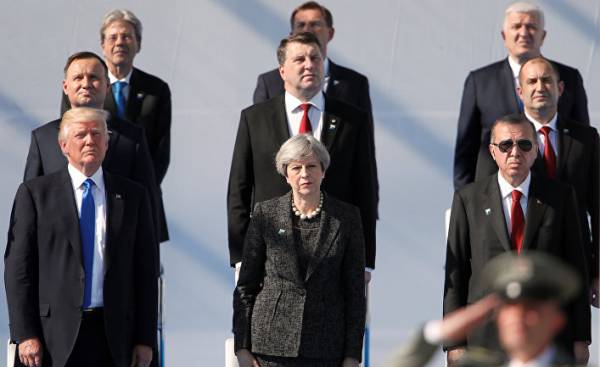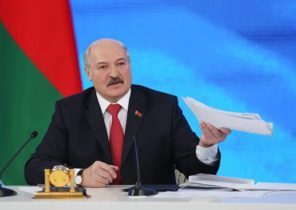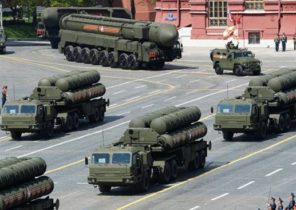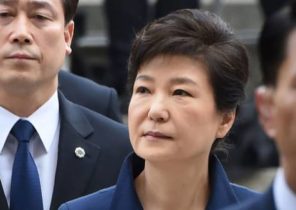
Fear of Europeans and Americans ‘ anger fully evident this week during a meeting of heads of countries-members of NATO in Brussels. This meeting can hardly be called a celebration of love, however, the divisions are able to create a false impression on important progress. For Russia, the results of this meeting definitely are not winning.
Yes, the American President Donald trump has openly criticized its European allies that they do not take a fair share of the defense burden and comply adopted at the summit in Wales in 2014 the commitments of spending 2% of GDP on defense. In addition, despite the hopes of some European leaders, he openly declared commitment to the fundamental Article 5 of the NATO Treaty, which emphasizes the collective defence system of the Alliance.
However, on the opening day of the magnificent new headquarters of NATO, Mr. trump has made a policy statement that NATO in the future should pay “great attention” to “threats from Russia, as well as threats on the Eastern and southern borders of NATO.” He also said that the United States “will always be together with your friends that have supported us in a difficult situation”. He said this during the opening of the memorial dedicated to the events of 11 September 2001, after which — and this was the only case of a NATO — led Article 5.
Assistants the American President claim that his statements in Brussels were a Testament to the obligations of joint defense. And the President of the European Council Donald Tusk after a meeting with Mr. trump in Brussels emphasized that there are no differences between the allies over Ukraine and the fight against terrorism. In fact, NATO now wants to join the fight against the Islamic state (banned in Russia organization). Thus, at this meeting were measures of containment, and appropriate assurances of Alliance.
Over 20 members of the NATO is not fulfilling its obligations regarding spending of 2% of GDP on defense and did not provide realistic graphics in relation to achieving these targets by 2024, as the administration of the trump, and, nevertheless, there is reason to talk about a very important progress. Germany in 2017 increases defense spending by almost 2 billion euros, bringing them thus to 37 billion euros; Romania plans to spend 2% of its GDP this year, and the Scandinavian countries such as Denmark and Norway increase defense spending and intend to buy the fighter “stealth” fifth generation. Sanctions against Moscow continue to operate. Important is the fact that NATO continues to expand. Despite loud objections and tough pressure, Montenegro joined the Alliance and became its 29th member.
We should not forget that Russia hopes that she will be able to make a significant split in the ranks of NATO and weaken the Alliance. On the eve of the meeting in Brussels, the Kremlin, seemed to have a lot of advantages. Most NATO countries reduced their defense spending, and, in addition, the Alliance has had difficulty in formulating a unified policy, and the United States, apparently, got exposed to manipulation, pompous and inexperienced President, the members of the election team of which his former national security adviser allegedly had questionable ties with Russia.
Harm NATO, of course, is a long-term goal of Russia, however, recent statements and actions of the Kremlin are particularly tactical sophistication, designed to replace the real power. In addition, the Kremlin continues to maintain its usual way of doing it.
Russia relies heavily on a series of political and psychological tools as well as for military intimidation with the use of methods of hybrid war, which, in turn, includes a cyberwar and information war. Of particular interest is the use of Russian “reflexive control” in the military and in the psychological field. This method was developed in 1960-ies as part of the Soviet training of intelligence officers, including 401 school of the KGB, which had studied the Russian President Vladimir Putin. It is based on the use of elements of psychological and information warfare to manipulate the enemy and the snare of its capabilities, as well as aimed at obtaining advantages in the context of pre-existing positions of the enemies or their predispositions. However, all the efforts are directed to using deception and misinformation to induce the enemy to act best for the opposite side.
However, the high hopes of the Kremlin, apparently, turning into dust. In the United States ties with Russia are the focus of intense investigations by government agencies and subjected to ruthless scrutiny by the media. In Europe, a cunning Russian attempts to influence elections does not give the desired result, but instead raised concerns about Russian intervention. A large proportion of the paradox is that the ingenious plans of Russia produce these unintended results. After the end of the cold war has never Russia did not react more negatively. The words of Putin’s government and its actions are subject to the most scrutiny, and the Russian gestures are perceived with great suspicion. All potential Russian threat (and among them, in fact, there are very real) instantly find themselves under a magnifying glass. The impression is that sometimes the cleverness is simply not justified.
Aurel Braun is Professor of international relations and political science of the University of Toronto and a member of the program Center Associate of the Davis Center, Harvard University (Davis Center, Harvard University). Soon will be released his new book entitled “Russia, West and security in the Arctic” (Russia, the West and Arctic Security).







